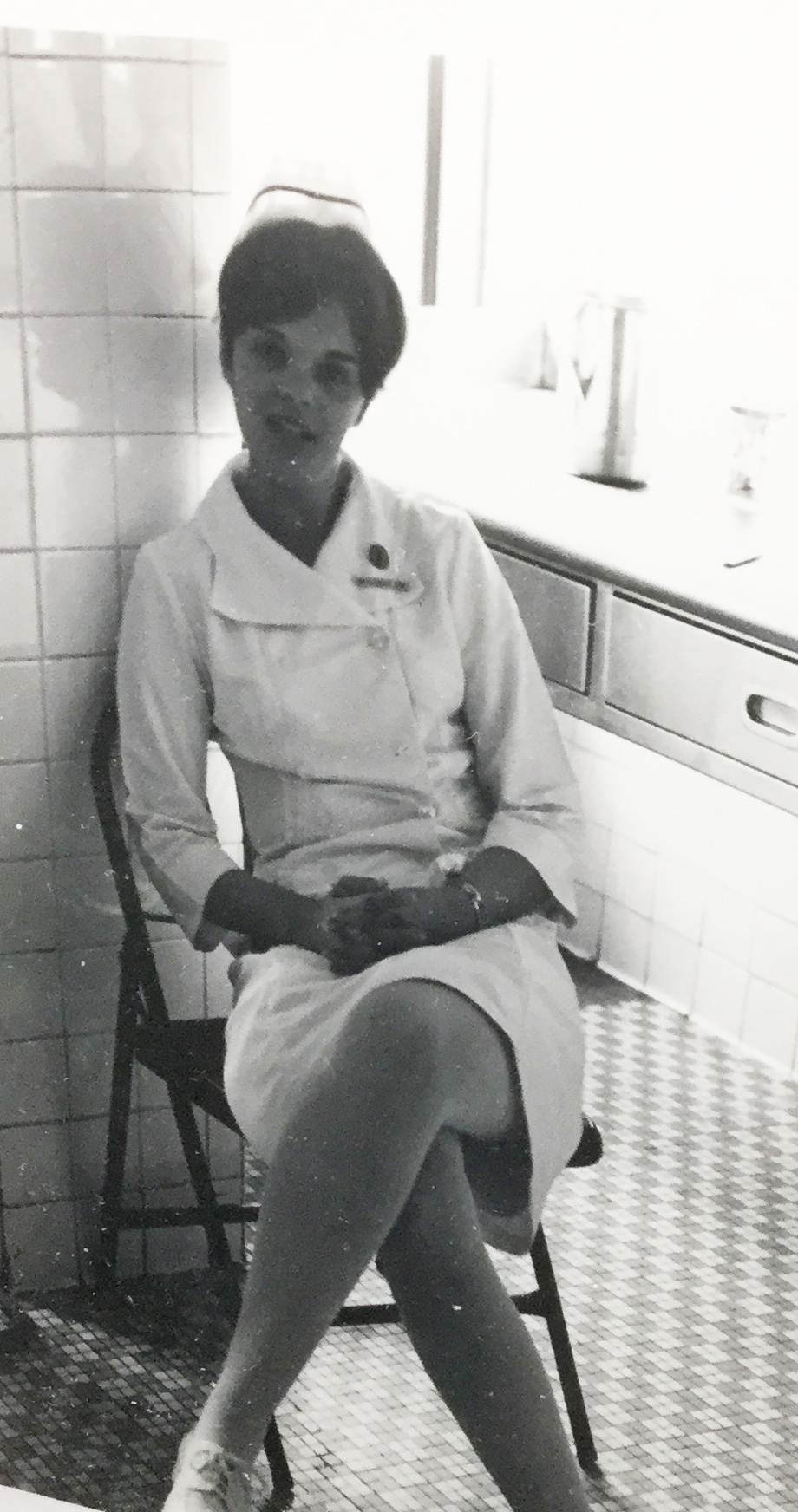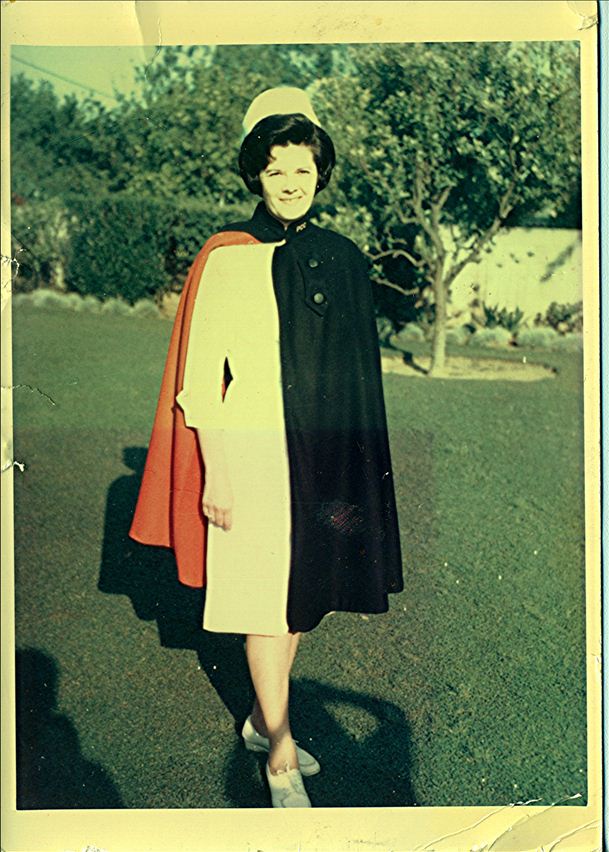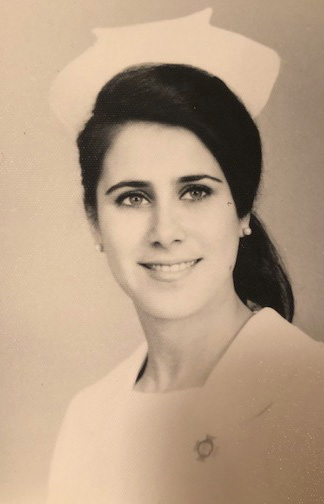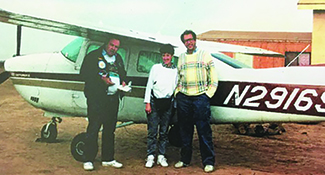American View
Members Share Their Nursing Stories
As part of our coverage of the nursing in America in our feature story, Hands-On Healing: Jewish Nurses, Yesterday and Today, we asked Hadassah members who are nurses, both working and retired, to send us descriptions of their experiences in the field. So many of you responded—sharing glimpses into rich and inspiring careers. All letters have been edited for space and clarity.
And for more on Hadassah’s work bringing together to Jewish nurses throughout the United States through the Hadassah Nurses & Allied Health Professionals Council, read Advocacy and Connection, Hadassah Nurses Council.

Perhaps the most feared word today is Covid-19, but in the 1950s, the most feared word was polio.
In my second year of nursing, I was assigned to the ward for contagious diseases at Cincinnati General Hospital, which included a polio ward with iron lung patients.
We gave our patients supportive care and stabilized them. Some were mentally alert but physically handicapped, as polio caused nerve damage leading to difficulty breathing and paralysis. We placed these patients in iron lung machines. Through portholes on the side of the iron lung we fed, bathed, took vitals and gave comfort to patients. A small mirror was placed near their heads so they could look around the room.
One patient had contracted polio while pregnant. After many weeks, she was able to be set up with a “rocking bed” instead of the iron lung. The bed forced the diaphragm to either pull in or force out air depending on its upward or downward movement. She was able to return home and oversee the care of her infant child.
This was an unusual case, as most patients were discharged to permanent long-term facilities. Needless to say, we were happy for this woman and her newborn and grateful for the small “win.”
Ellyn-Mae G. Friedman
Norfolk, Va.

I have no idea what inspired me to become a nurse—maybe watching General Hospital with my grandmother. I began my nursing education in 1965, becoming a licensed practical nurse. In 1972, I graduated from a college program to become a registered nurse. Throughout nursing school, I heard frequent comments that Jewish girls do not become nurses.
I worked for 44 years, hoping and thinking I might make lives a little different or better for patients.
Dolores Anschel
Murrells Inlet, S.C.
I have loved nursing for over 40 years. I was a nurse-midwife during my early career, then a nursing instructor in maternal-child health. Although I have recently retired, I volunteer for the American Red Cross in their Disaster Health Service. I was also deployed to California during the 2018 wildfires, where I provided care in a shelter for families displaced by the fires and served on the Maccabiah Medical team, a great experience combining two loves, Judaism and nursing.
Helen Jacobson
Randolph, N.J.

My mother, Mildred Weissman, a Hadassah member, became a registered nurse when I was a freshman in college.
She had always wanted to be a nurse but waited until all of us kids were older. She ended up inspiring me—also a Hadassah member—to become a nurse. I received a bachelor’s in nursing in 1970 and my master’s in 1980.
Once, we worked together at a Catholic hospital and introduced Hanukkah to the staff and patients. After that, they put up Chanukah decorations every year.
I continued to share my Jewish holidays with everyone in my subsequent jobs. Our caring for people and tradition carried over to our feelings about Israel and Hadassah.
Jan Weissman
Thousand Oaks, Calif.

I graduated nursing school in 1967. Loosing my Dad at age 7 to cancer made me realize I wanted to be a nurse. I was called to the ER several times to translate Yiddish for elderly patients. Yiddish was commonly spoken in my household. I was very fortunate to work when nursing was a hands-on profession that encompassed all aspects of care,support and professionalism to meet the needs of my patients.
Lenore Robin
Stamford,Conn.
It was the summer of 1971, a sunny Long Island afternoon. The kitchen table was clear, as always. I’m not sure how the discussion started, but “The Talk” unfolded in ways I did not expect; I naively thought I would be a big part of this conversation.
Father blurted out, “Dorothy is going to be a teacher.” Mother answered back sharply, “Dorothy is going to be a nurse.” Father exclaimed, “What Jewish girl becomes a nurse?” Mother retorted, “But, she can go through nursing education in two years. That would be cheaper.”
The bickering went on so I decided to say something, “Does anyone want to ask me?” Both parents answered in unison, “NO.”
My father immediately softened, “Go ahead and tell us.”
A slight pause, “I’d like to be an architect.” Again, in unison, both parents stated, “No.” My love of art crumbled under the kitchen table; “The Talk” was never finalized.
December 11, 1971. My father, 47 years old, passed away the night before Hanukkah began, leaving behind a 42-year-old widow with five kids. In the fall of 1973, I attended Queensborough Community College School of Nursing; 1976, graduated with a BSN from SUNY Utica/Rome. I began to enjoy nursing experiences in the real world. Was mother right after all?
Finding humor in everyday situations became my goal. I was reminded of one of my favorite stories from early on every time I took a blood pressure. One morning when I was part of a clinical Practice at Long Island Jewish Hospital, one of my student nurse peers came up to me with a bold statement: “These Jews are really smart. I peeked through the curtain, and the patient was already taking his own blood pressure. I’ll go back later to ask him what he got.” Ah ha, a teaching moment! Was father right, too?
I’ve enjoyed 44 years of nursing, 30 of those years as a school nurse. When the redemption comes, I plan to thank my parents for “The Talk.”
Dorothy I. Rabinowitz Zarbo
Dallas, Tx.

After reading in Hadassah Magazine that Hadassah’s two hospitals needed nurses, I started the application process with Israel’s Ministry of Health. Before final approval came, the first Gulf War broke out. But the war didn’t deter me. Once approved, I flew off in January 1991 for a one-month stint in an operating room on the Mount Scopus campus, an experience I will treasure forever.
This first volunteer assignment motivated me to find other humanitarian missions. I spent occasional weekends in a remote city in Mexico reached only by flying in a single-engine, two-seater plane, just a general surgeon and me.
This was followed by trips to other parts of South America, mostly Ecuador, to repair cleft lips and palates in children and adults, with a team that included a plastic surgeon and an anesthesiologist. We were housed with a local family, whom I am in touch with to this day.
Dorothy Lasensky
Irvine, Calif.
I suppose I always had the tendency; I was the little girl with the nursing bag.
The desire to be a nurse intensified over the years but became destiny when my father got sick with colorectal cancer, had a colostomy and died. He was 49 and I was 24, married with 2 children. With the help of my supportive husband I received my BSN, master’s in public health and certification in wound/ostomy/continence care and have spent the past 44 years healing wounds and helping ostomy patients and their families live a life of maximal quality. I have tried to live in the spirit of tikkun olam, repairing the world one patient at a time because nursing, good nursing is not just a compilation of skills but the skill of empathy and kindness.
Besides the word “mother,” the thing I am most proud of in my life is being called “nurse.”
Janice Malett
Somers, N.Y.










 Facebook
Facebook Instagram
Instagram Twitter
Twitter
Leave a Reply